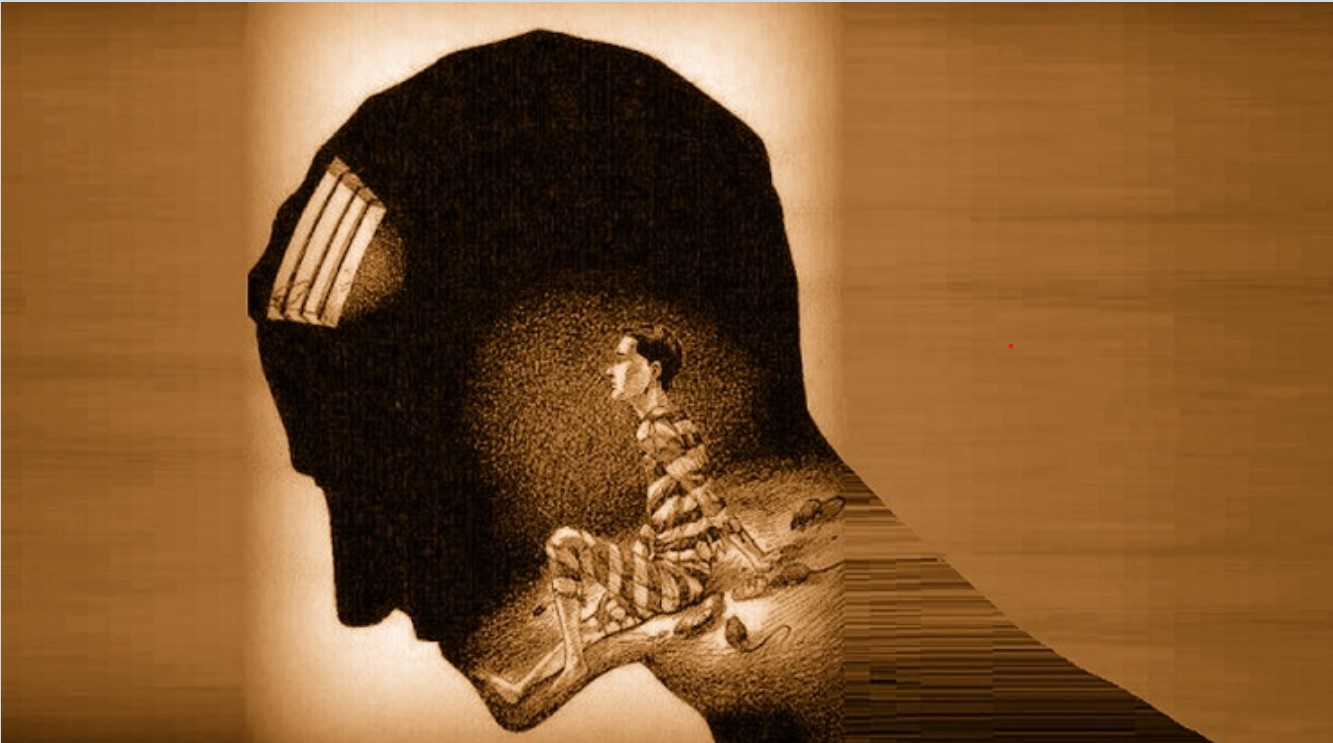This article is dedicated to Gender Empathy Gap Day on July the 11th. To all men and boys, you do matter and more than you know!
What is gynocentrism? In the simplest sense it is the preferential concern for the well-being of women and girls and their elevation in social status on the basis of their sex. It is the gender empathy gap. It is the discrimination of men and boys and in favour of women and girls. It is female supremacy and female superiority. In a word it is bigotry. We live in a culture that normalises gynocentrism so well, that people can run targeted campaigns solely promoting the concern for the female homeless and completely ignoring the majority of homeless that are male. People will even seriously argue the primary victims of war are in fact women and ignore the millions of male dead.
There are many other countless examples like this illustrating the gender empathy gap. The myopic concern over the lack of women and girls in STEM and the complete silence and inaction on men and boys falling behind at every level of education from kindergarten to postgraduate study is one example. The comparative lack of funding for men’s health in relation to women’s health, despite men living considerably shorter lifespans, dying of most major diseases earlier and in higher numbers and men’s far higher rates of suicide is another example. To add insult to injury, there are the female only quotas in employment and education and a complete lack of any effort to increase male representation in professions you would think gender diversity would be of highest relevance like psychology, education and medicine.
Perhaps the most glaringly obvious example is the willingness of society to force men off to be cannon fodder in war, whilst sparing women this male privilege. Possibly with that last example there will be some change in the US[1] where it concerns selective service. Even then it will be men no doubt who will actually be the ones deployed in combat zones in harm’s way if a major war breaks out, just as it is men that are overwhelmingly expected and in fact demanded by society to do all of the dangerous, dirty and unglamorous work in society. Work which frequently leads to chronic injury and sometimes death.
We live in a gynocentric culture and women enjoy a monopoly where it concerns receiving empathy from society for their issues as a group and as individuals. Our culture routinely segregates men and boys from women and girls where it concerns matters to do with who gets support and who does not and who gets preferential treatment with quotas and who has to excel purely on merit and be shamed for doing so. The truth of the matter is that we do live in a society of gender segregation with women elevated above men. The dominant gender ideology of our age, naturally reflects the bigotry of our age. Feminism did not create this bigotry, feminism emerged from it and is a reflection of a longstanding prejudice we have.
We are told this society is a patriarchy and yet the wider culture and every institution at every level condemns the very behaviour and systems of discrimination that feminism claims our society normalises. Like with so many things, feminist ideology has become projection and an inversion of reality. Has it always been this way? No it has not always been this way. I would not go as far as to say our past societies were purely patriarchal as feminists have described them, however I also would not go as far as to say past society has been purely gynocentric either. Like with many aspects of society, for most of recorded history there has always been a mixture of elements in our culture that discriminate sometimes in favour of men and sometimes in favour of women. As Dr. Warren Farrell has written about in his book, The Myth Of Male Power[2], many of these double standards come from gender roles that themselves have arisen from societies relentless need to survive.
Whilst both sexes have faced unfair treatment on the basis of their sex, there has been a consistent pattern in our culture over the last 150 years to correct discrimination facing women. There has been relatively little current or historical effort to correct discrimination facing men. Why the difference? The gender empathy gap is the reason. Once technological change reduced the daily pressures on communities to survive and permitted desirable social change, the empathy we have for women drove female emancipation. In contrast we have not seen the same social change where it concerns the life of men and this is because our culture has lacked and still lacks the degree of empathy it has for women where it concerns men and the issues men face.
Men are still bound by the same traditional gender expectations that they have always been expected to adhere to. To protect and provide for others, often at their own expense and even sacrifice their lives in the process of doing so. Men are expected to not be the recipient of support and compassion from society and instead be the provider of such support. We have HeForShe campaigns but no SheForHe campaigns. We have White Ribbon campaigns and calls for men to stand up for women facing domestic violence, but no comparative movement for male victims of domestic violence, despite substantive rates of female perpetrated intimate partner violence against men.
Many point to biology as the origin of the gender empathy gap, making relatively simplistic arguments that the empathy gap has to do with women giving birth and the dependence on the community for enough women to survive so society can replace itself (the golden uterus dogma). The problem with this alluring but overly simplistic idea is that like the gender wage gap narrative, this explanation reduces a complex multivariate problem of sustaining a community or society into a model that has little resemblance to actual reality.
The golden uterus explanation for the gender empathy gap, reduces relatively complex requirements for a population to sustain itself down to primarily or exclusively one variable, simple reproduction. It does not give any proper or proportionate consideration for the numerous other factors that determine if a population will survive or perish, like maintaining the food supply and basic shelter. Many of these other factors related to survival, men play a more important or equally important role in. The golden uterus dogma does not consider the impact of losing the men and consequently the manpower available to provide the necessary food and resources a population needs to continue to subsist. Whilst a society may die out if enough women are lost, the same is true if enough men are lost and there are not enough men around to support the survival of the community. This narrow view of focusing solely on uteri and reproduction, also does not consider the impact of manpower allowing a society to thrive instead of merely subsist and in doing so making a society adaptable enough to withstand frequent environmental challenges and not die out.
Population size means little if everyone is starving and breeding without regard to basic survival constraints. This is why arranged marriage has been so common in so many cultures over the centuries, including in prehistoric times and why sexual relations between the sexes have often been heavily regulated by the community and by parents. More babies mean the community needs to support more children that cannot fend for themselves. Societies have been more concerned with regulating reproduction rather than focusing purely on maximising reproduction and how many uteri were available. Some cultures even still engage in female infanticide or leave female infants to the elements when they cannot be supported. Such practices of course are indefensible on moral grounds, but their existence and similar practices like them, fly in the face of this notion possessing a uterus makes someone more valuable as a human being and this therefore explains the gender empathy gap. The reality on the ground is more complicated than that.
Whilst I would not agree with the simplistic assertion women being the rate limiting factor of reproduction makes them more valuable and thus explains the gender empathy gap, biology is certainly involved to at least some degree in causing gynocentrism and the gender empathy gap. Sex differences arising from differences in life history strategy, mean that there is in my view a greater tendency for women to develop physical and psychological characteristics that elicit support or empathy from the community and a greater tendency for men to develop characteristics that promote a more individualistic, self-sufficient approach to survival and maximising reproductive success.
When a man can father hundreds of offspring, it can pay to take greater risks to maximise reproductive success and exhibit a high degree of personal agency and self-sufficiency and rely less on the community for support. In contrast when you can mother only a few dozen offspring at the most and spend considerable periods of time in a vulnerable physical state whilst pregnant and caring for infants, it can pay to take less risks and be able to garner the attention and empathy of the wider community for support.
The biological underpinnings of the gender empathy gap, is not about who is the more valuable sex. Such an explanation ironically reflects the same gynocentric bias it attempts to objectively explain without prejudice and then predictably fails in doing so. The biology behind the gender empathy gap, is about differences in how each sex maximises their chances of propagating their own genetic line and how these differences can work to the advantage and disadvantage of each sex depending on the scenario. At the extreme dysfunctional end of these differences, we get a gynocentric culture that promotes male hyperagency and shuns concern for men and encourages female hypoagency and treats women like children.
The greater degree of female neoteny stimulating a greater degree of societal concern for women, is one such example of a sex difference that can drive the gender empathy gap. Female neoteny is in fact not the product of women being more valuable because they possess a vagina. Evolutionary biology is a bit more complicated than repeating reductive gynocentric pseudoscience to justify the status quo, just as racists and eugenicists of the past did with debunked racial science ideas like Drapetomania[3], a theory that slaves desiring their freedom were suffering from mental illness!
Whilst there is undoubtedly a biological reality to the gender empathy gap. It is also a reality in our species, that sex differences in neoteny are not as pronounced as they are in many other animals and primates. It is also a fact that women and girls can and do spend a great deal of time exaggerating their neotenous appearance. These two observations can be replicated in relation to many of the major emotional, sexual and social triggers driving gynocentrism.
Peter Wright and Paul Elam have discussed the role of superstimuli and superresponses to those superstimuli at length in their works Chasing The Dragon[4] and Slaying The Dragon[5]. We live in an environment saturated with superstimuli that exaggerate female vulnerability, just as we live in an environment that amplifies the prevalence of salt and sugar in our diet and these superstimuli lead to an exaggerated superresponse to those stimuli. We cannot consider biology in isolation to the environment, particularly where it concerns the role of superstimuli underpinning the gender empathy gap and the role of modern communications and social media in amplifying their impact far beyond any evolved tendency to view women as the more vulnerable sex in need of support. We have in the West an environment full of feminist narratives of female victimhood and vulnerability and male perpetration and power which act as a form of gynocentric social superstimuli, that collectively with exaggerated female neoteny, put any evolved biological predisposition for gynocentrism on hyper drive. This then leads to male hyperagency and female hypoagency and a resulting gender empathy gap.
So whilst biology is involved, it is helpful to illustrate precisely how. When you roll a ball up a hill it has potential energy. If you push the ball down the hill it has a tendency to move in that direction and release that potential energy. Our biological predispositions toward various behaviours are similar in that regard only far more complex. Imagine the weather conditions that need to manifest themselves in a precise way to generate a tornado. The atmosphere on its own cannot generate a tornado unless it is in a particular state from local environmental conditions. Gynocentrism is similar in this regard and arises from a very complex interplay of biology and environment. When we are saying behaviour is biological, we are essentially stating the obvious. All behaviour involves a biological being and biological processes, but that is distinctively different from stating that a certain behaviour is an absolute like breathing and invariantly expressed regardless of the environment. Gynocentrism and the gender empathy gap are not absolute biological invariants, they are biological potentials which are expressed to different degrees depending on environmental conditions. In the West this biological potential is expressed to an exaggerated degree thanks to gynocentric superstimuli.
The frequent retort to this is the following question, “Can you find me a culture that is not gynocentric?”. Then you cite examples and then they cite back examples of gynocentrism in said culture. Of course if you look hard enough you can find examples of all sorts of behaviour in a given culture, that does not mean gynocentrism is mainstream in that culture, or acceptable to its social norms. It is also a fact that certain customs or laws may appear to be driven by gynocentrism in a given culture from a Western vantage point, when in fact there may be other reasons behind them that have little or nothing to do with gynocentrism. What is interesting though is the same people that ask these questions will not ask the question, “Can you point to a culture that is entirely gynocentric?”. Even our Western culture as gynocentric as it may appear, is not entirely gynocentric. That is to say, that our culture like many cultures is a complex mixture of different forces acting together, frequently in opposition all at the same time.
It would be false to suggest gynocentrism does not exist at all and it would be false to say gynocentrism is reflected throughout all cultures of the world at every level and in every context. In other words, it would be incorrect to say that either the existence or nonexistence of gynocentrism is an absolute and a biological invariant. Gynocentrism exists, but it does indeed vary across environments and even within cultures. Even how gynocentrism manifests in the West from one country to the next can be different. Gynocentrism is not a biologically invariant behaviour like breathing.
Gynocentrism is a complex set of behaviours that are learned from our culture and reinforced through our institutions, our media and our laws. Biology is just the substrate these forces act upon. The influence of our culture and our institutions on our biological predispositions in how we perceive and act on vulnerability when it comes to biological sex cannot be understated. Behavioural conditioning has ample empirical evidence supporting its existence in animals and humans. The results from classical conditioning and operant conditioning from numerous studies have been replicated thousands of times. It would be easy to believe that in every brain there is a basic program governing every aspect of human cognition and behaviour from breathing to which political ideology a person supports, but the reality is far more complicated.
How complicated? Watch Prof. Robert Sapolsky’s lecture series on behavioural biology and the limits of reductionism when explaining biological systems, particularly his first introductory lecture[6] and lecture on chaos theory[7]. To put it simply we really cannot reduce behaviour down to a single aspect of biology or culture or a genetic lock and key mechanism. Behind every behaviour there are hundreds, if not thousands of processes both biological and cultural working together to produce the complex behaviours we see. Like the weather the interactions are so complex and chaotic they are difficult to predict with pinpoint accuracy.
The reality is that social learning and conditioning, just like biology, does play a significant role in how we develop as people and how we collectively behave. Our legal system and the billions of dollars spent on marketing is based on this premise. Our own militaries and intelligence agencies and those of our adversary’s, understand the importance of psychological warfare and controlling the narrative through propaganda. Organised religion relies upon social learning and behavioural reinforcement of approved customs and social norms. There is no biological program hardwired into people’s brains to not eat meat on Good Friday, that is learned behaviour.
To suggest almost one thousand years of gynocentric cultural conditioning from one generation to the next and centuries of institutional enshrinement of gynocentric double standards has not had any impact on how we as biological beings behave, flies in the face of ample historical and scientific evidence. Evidence to show tradition, narratives of our history and conditioning associated with those traditions and narratives, shapes perception and shapes behaviour. Where do you think the concept of “man up” and being a “real man” comes from? That is basic social programming and operant conditioning at work to beat men over the head with when men start asking questions about gynocentric double standards.
Men and society at large have been under the assault of gynocentric social programming for centuries. The gender empathy gap exists because we have centuries of narratives and conditioning playing on biological potentials to view women as the more vulnerable party and men as powerful agents. It is analogous to playing keys in a certain sequence on a piano to produce a gynocentric melody that everyone becomes entrained into thinking as normal. It is a melody of social programming where men are portrayed as strong and as demonic in need of redemption from their toxic masculinity and women are portrayed as vulnerable and angelic in need of saving and adulation for their feminine divinity. This is called moral typecasting and there is evidence[8] to show that men are morally typecast as the less vulnerable sex and the sex least deserving of support and so we predictably demonstrate a lower expression of empathy toward them. Moral typecasting is learned and it impacts how we perceive the world and behave.
None of this is insurmountable though. Narratives change, evolve and are replaced over time with better narratives as the culture matures and evolves to higher and higher levels of moral development and sophistication. There was a time when sacrificing female virgins to appease the gods to ensure a good future harvest was considered acceptable and the right thing to do. We do not do that anymore, we evolved beyond practices we now consider to be barbaric or discriminatory but were once considered acceptable in the past.
Racism has a biological element to it as well. Humans have a biological predisposition to be tribal and form groups based on shared genetic heritage. Just as with gynocentrism, there are countless examples of racism throughout history and arguably over a far longer period of time. Just as with gynocentrism there have been narratives justifying discrimination, the segregation of races and even their extermination. Gynocentrism is nothing special. Racists of the past used the same pseudoscientific use of biology to justify their bigotry of racial superiority, just as some people currently do attempting to justify and rationalise gynocentrism as some immutable biological law that our species is unable to rise above. If we accepted such pseudoscientific nonsense on the matter of race, then we would not be living in the society we do today in the West. The reality is that despite our tribalistic nature, we have been able to rise above any biological predisposition we have and make progress against racism. The same can be true for gynocentrism which is the modern bigotry of our time.
The appeals to nature to explain and justify gynocentrism, doing nothing to address it and attacking those that do, are really just excuses people are using to avoid asking tough questions about human nature and about themselves. That is why there is so much vitriol when you dare question the idea gynocentrism is some immutable law of human behaviour. Human beings are herd animals and that too is biological. Despite the prevalence of herd mentality, groupthink and the desire for people to conform and despite numerous historical examples of the atrocities that have unfolded as a result and the research[9] demonstrating their power, these important aspects of human behaviour barely have been mentioned in relation to explaining gynocentrism. People are to an extent sheep and that permits people to blindly go along with all sorts of ideas, even when they are completely wrong and people know they are wrong. The biological desire to conform and not to be different from the group is strong. I would argue it is the desire to conform to gynocentric double standards that are socially enforced, that is the single most powerful driver of gynocentrism. It is the same force behind the groupthink we saw unfold in the pandemic and the herd mentality that resulted in the extermination of millions of Jews.
Once the desire to conform is removed or exhausted, men go their own way. The desire to conform has limits and every major social change or revolution that has occurred throughout history has always begun with a few outliers reaching the end of their patience and rebelling before it gradually becomes an unstoppable force and attracts millions of followers. As conditions become more and more unbearable, people one by one start to reach a tipping point where they will no longer conform and no longer obey. Even the desire to conform could not stop the social change of the civil rights movement and even in Nazi Germany there were multiple acts of resistance, including within the Germany Army itself. Eventually sooner or later, people get sick of conforming and desire change. That too is biological and human nature. People’s desire to conform only goes so far with their own biological interests before it becomes advantageous to rebel.
That is truly what our gynocentric society is afraid of. The gender empathy gap exists in large part because men acquiesce and go along with it. What can we do to change this? From my perspective it starts with men themselves. If men do not express any concern for their own well-being, then how can men expect the rest of the population to share that concern? If men continue to sign up to a marriage contract and are fully aware of the bias in divorce and family court, there is no reason to complain when they join the line of men subjected to the injustice of divorce and family court. Men teach society how to treat them through their own actions or lack of inaction to protect their wellbeing and interests. It is very simple stop acquiescing. From my experience men are far too willing to worry about pleasing other people where it concerns gynocentrism and especially worry far too much about female approval and their disapproval. Women are no more the gatekeepers of relationships than men are. It is all a matter of boundaries and enforcing those boundaries. Ask yourself these questions, if you are a man and worried about such things:
Why would you worry about the approval of someone that regards your well-being either as a secondary concern or of little to no concern at all?
What value is there really in a social connection where the other person sees you as existing to please them and values you solely for what you can do for them without reciprocity, if you can even call it a social connection at all let alone a relationship?
Men are raised from birth to view women as the fairer sex and the more peaceful and caring sex. This has profound impacts on how men view themselves in relation to women. However when those decades of social programming start to unravel from direct exposure to the wrongs and injustices of our modern gynocentric culture, men in increasing numbers are starting to question the narratives they have been told.
Part of addressing the gender empathy gap is to teach men that they are worthy of respect because they are men and that respect for their well-being is something that they must protect irrespective of what our dysfunctional gynocentric culture is trying to tell them. Men are remarkable creatures when you consider what men can do. A single man can literally change the world and leave a legacy lasting thousands of years. All of the men we would regard as great, often did things that went against the orthodoxy of their time. Jesus Christ and Martin Luther King etc. You cannot stand up to the culture when you do not believe in yourself and so that is the very first step men must take. It is one thing for me to write this and it is another for men to truly believe it about themselves deep in their bones.
Men have been lied to. Men have been told by this gynocentric culture they are disposable and are human doings. The truth is this gynocentric culture cannot exist without men believing those lies. In order for a human male to do anything and to be of use to anyone, they must regard themselves as a human being first and view themselves as worthy of basic care and look after themselves. How much male potential is squandered by men failing to take care of themselves and measuring themselves solely by what they do first whilst neglecting their wellbeing? How much does society lose by failing to take care of male wellbeing? A great deal.
If men want to address gynocentrism and resolve the gender empathy gap, then they have to value themselves enough to want to change how they are treated. Until men demand change, nothing will change, it is that simple. Forging a new narrative about men, women, power and vulnerability is also a key to how men demand this change. We need to play a new melody of cultural narratives on our biological piano that better resembles the world we want to live in and fully utilises our biological potential in a more positive and constructive way. Whenever it is brought up that we should have a tally on how many women have died from domestic violence over the year, men should be demanding the same be done for male victims and perhaps demands from men for a male suicide and homeless tally would not go astray either.
Men need to stop caring about what women think. If women have any value to men at all, then it is in loving them and supporting them as fellow human beings, as loved ones and as partners (and I would say the same advice for women). The same applies to men and how they regard their fellow man. What sort of man shames another man for protecting his well-being and his rights as a man? What sort of man abandons moral principles once a woman is involved? What sort of man shames another man that does not want to live in a subservient, second class and frequently demonised position in relation to women because he is male? No man at all. Masculinity in its basic form is self-respect and standing up for yourself and what you believe in and your values. The original code for chivalry before it was corrupted by our gynocentric culture was a military code of honour between men. It was a code that enshrined respect between men. This code needs to be revived and chivalry needs to be taken back by men and restored free of gynocentric corruption, perhaps with some modern modifications.
A gynocentric culture cannot tolerate a population of men that stand up for themselves and know their own worth in relation to women. This is why such much effort is put in and continues to be put into trying to “educate” men to respect women as some elevated aristocracy and every effort is made to demonise men and silence any attempt to instil self-respect in men. Self-respecting men are not violent unless they are defending themselves and do not disrespect women or men unless they act in a disrespectful manner.
Men have the moral high ground when they realise that self-respect is not oppression and that the true oppressors are the very people teaching them they are toxic, disposable, deserving of hate and inferior simply because they are male. Addressing the gender empathy gap starts with men taking that very first step of living life with self-respect and enforcing their personal boundaries. The next step is spreading a superior narrative that reflects the true reality of power and vulnerability when it comes to men and women in the modern world and calling out attempts to silence that narrative for the hate and oppression that it truly is. In the end lies cannot compete with the truth.
Gynocentric culture reduces fertility rates. When you elevate catering to female narcissism above the good of society and marginalising men, your society begins to die out. Whatever biological forces prevail, only societies that possess cultures that harness their genetics in ways that further their own existence will survive. Men must rise up for themselves, but also for the future of their communities. Masculinity and civilisation go hand in glove.
References:
[1] https://abcnews.go.com/Politics/legislation-require-women-men-sign-potential-draft/story?id=79013594
[2] https://www.amazon.com.au/Myth-Male-Power-Warren-Farrell-ebook/dp/B076HVLZGH
[3] https://en.wikipedia.org/wiki/Drapetomania
[4] https://www.youtube.com/watch?v=VygKQV-hEpY&t=1s
[5] https://www.youtube.com/watch?v=n5WLNMX4COA&t=0s
[6] https://www.youtube.com/watch?v=NNnIGh9g6fA&t=1030s
[7] https://www.youtube.com/watch?v=_njf8jwEGRo
[8]https://www.sciencedirect.com/science/article/abs/pii/S0749597820303630#:~:text=The%20moral%20typecasting%20hypothesis%20contends,schema%20is%20a%20prototype%20observers
[9] https://www.verywellmind.com/the-asch-conformity-experiments-2794996




